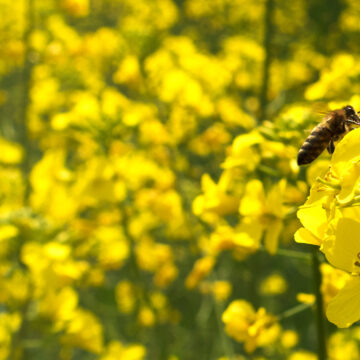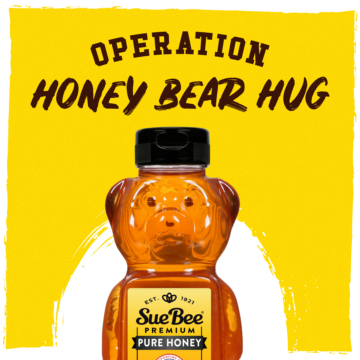From NASA to Nectar
Engineering a successful family-run honey farm
Talk about changing the trajectory of your career.
Howard Bradshaw was working as a rocket engineer at NASA-supplier Rocketdyne in the mid-1960s when he decided to leave all that behind to devote his life to beekeeping.
Of course, Howard wasn’t a novice when it came to keeping honeybees. He had found a swarm of bees as a youngster and immediately fell in love with the amazing insect.
“He came home from work one day – he was fixing bicycles at the bike shop for 25 cents an hour – and there was a swarm of bees sitting on the hedge in the front yard,” explains Howard’s son, David. “Back in the day, you could go down to Sears Roebuck and buy anything that was in the catalog, including a beehive kit, so he went down and bought a beehive. That was the start. He kept bees from that time on until he officially retired a few years ago.”
At Rocketdyne, much of Howard’s work related to the Apollo Program, David says.
“But they had a series of mishaps where someone mixed the wrong combination of fuel together and there was an explosion,” David recalls. “My dad said, ‘You know what? I think beekeeping is a safer job than building rocket engines.’ So he quit.”
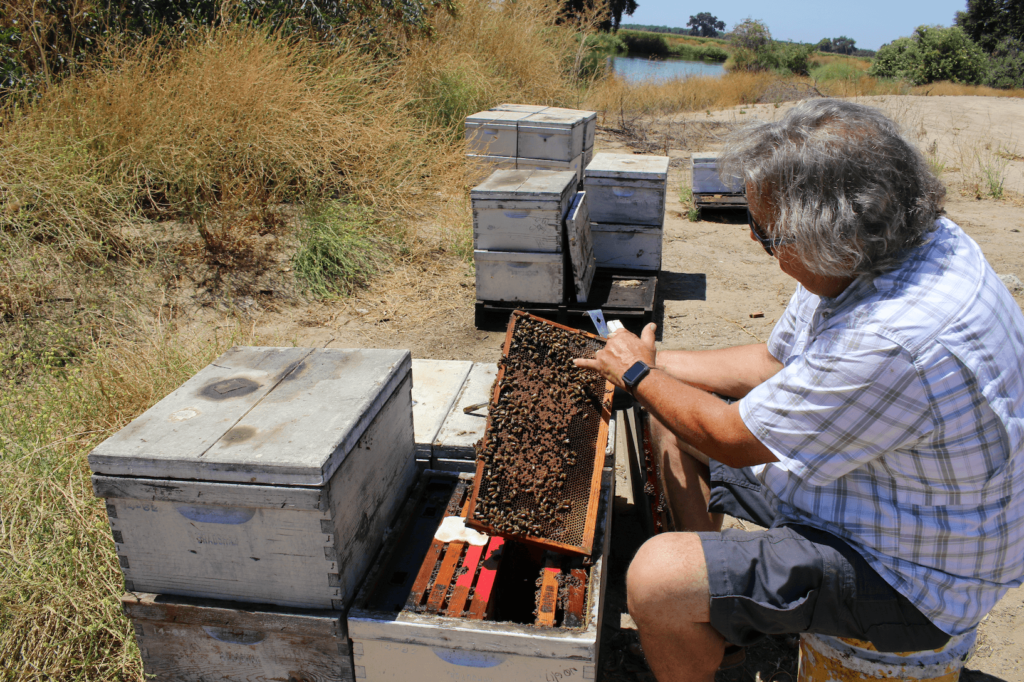
Beekeeping becomes a lifelong love affair
Howard moved his family from Los Angeles to the Visalia, California, area, located about 40 miles south of Fresno, where the Bradshaw Honey Farm has been ever since. In addition to building his honey operation, Howard also rented his bees to area farmers for pollination services.
“More and more almonds were in demand, which called for more bees, so we got more bees and it really took off,” says David. “When I graduated from high school, my mom told me that I needed to go to college and my dad was like, ‘No, he needs to work bees with me.’”
David did attend a few years of college before returning home to work in the honey business. He soon added his own hives to the operation, and Howard joined the Sioux Honey Association Co-op in the late ‘60s; David joined in 1976.
“We do a lot of pollinating, but we also have an amazing honey crop to go with it,” David said. “We’re surrounded by oranges, so our big honey crop is orange honey. And then, in the summer, we have some alfalfa honey.
“My dad and I worked side by side until he was 81,” David said. Howard passed away in June 2019. “He longed for the days of working with bees.”
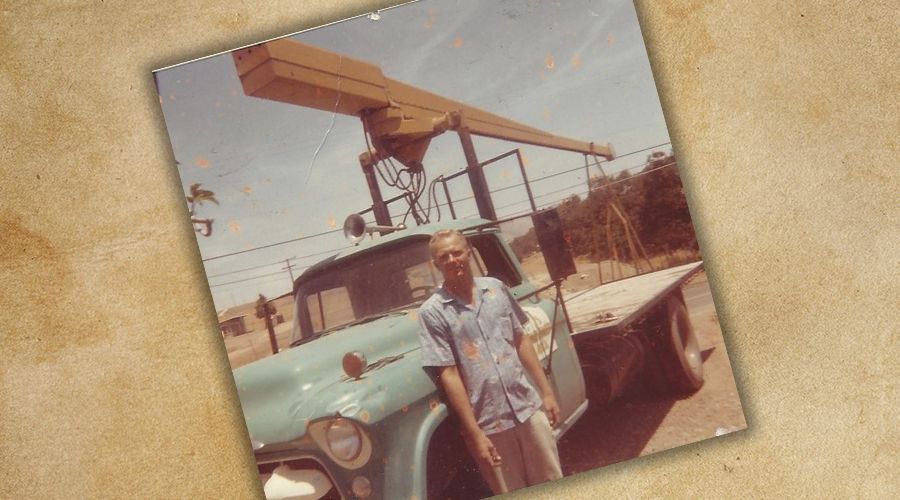
A handshake and some honey
For honey farmers, it’s all about location. The fields where they are able to set their hives determine what types of honey their bees produce, and how much. For years, beekeepers have made handshake deals with traditional crop and livestock farmers to place their hives.
“It’s still done with a handshake, surprisingly,” says David. “It’s still pretty old-school. I’ve been working with these ranchers and farmers for 40 years. They’re good people.”
Nozzles and dollies
David Bradshaw must have his dad’s engineering genes in him, because he has made a name for himself with beekeepers across the U.S. thanks to his custom-made beekeeping tools.
“We are always looking for ways to make our work more efficient,” David says. Through years of trial and error, we have developed a few tools that have proven to save us time and save our backs from the constant bending and lifting.”
From a special Bee Hive Dolly (aka “the Back Saver”) to a custom-designed beehive tool that helps with beehive box construction, David is all about making the beekeeper’s job easier.
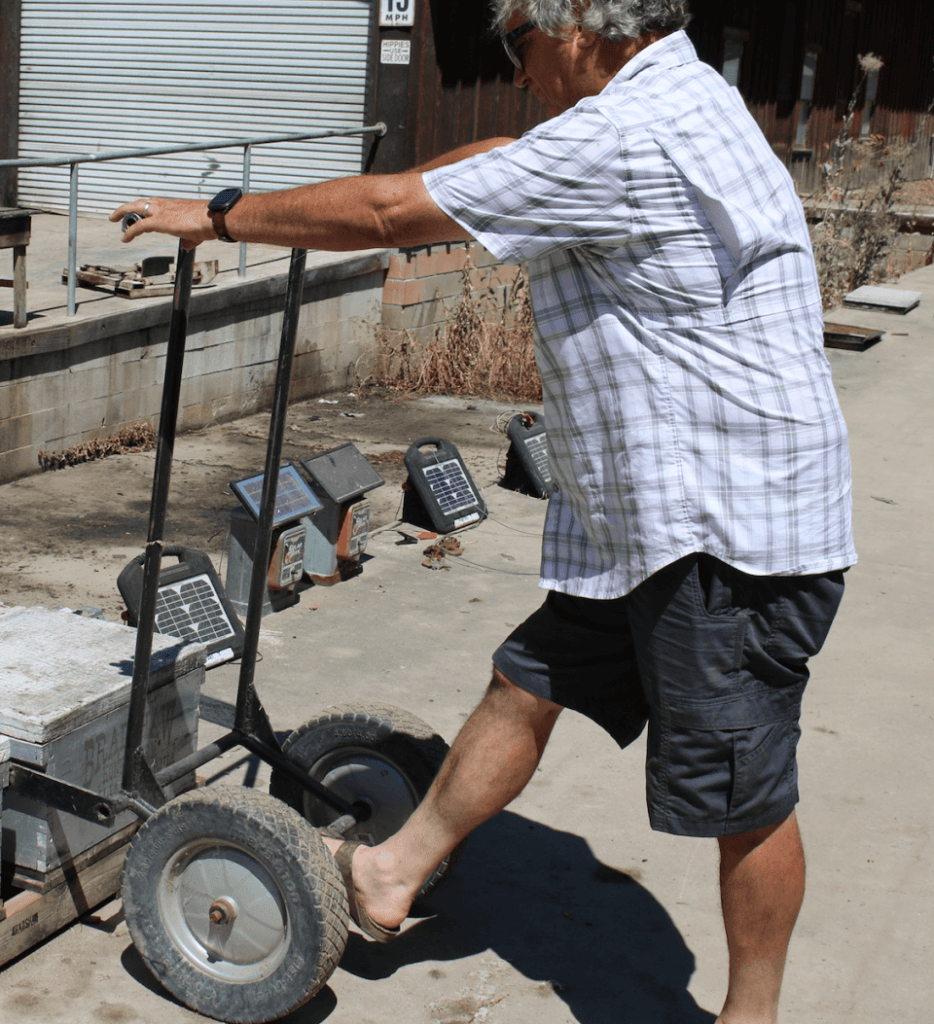
Best job in the world
“The lifestyle of beekeeping, being your own boss, is amazing,” says David. “You watch the bees and see how they are organized; it’s just amazing.”
Of course, beekeeping – the long hours, the driving, the moving of hives, the stings and everything that goes with it – comes with a lot of responsibility and hard work.
“It’s a constant effort, every day. I keep a little notebook here. My list just keeps getting bigger and bigger and bigger. I keep checking them off because I have to think of things to do, think of things for the employees to do, and try to get everything done in an efficient manner.
“But this is the best job I could ever imagine.”

